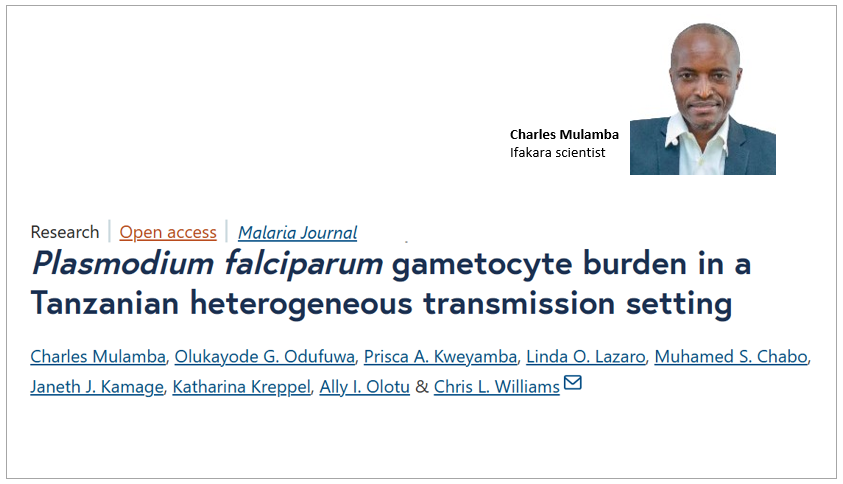
MALARIA: Efforts focusing only on children could leave big gaps in disease control, new study warns

A new malaria survey conducted in Bagamoyo, Tanzania, has raised concerns that current control strategies—focused mainly on children—may be missing major sources of transmission, particularly among adults and men.
Findings support upcoming vaccine trial
Led by scientists from Ifakara Health Institute, Tanzania and the University of Oxford in the UK, the study aimed to identify which age groups are most responsible for carrying gametocytes—a stage of the malaria parasite that allows it to spread from humans to mosquitoes. It was part of baseline research to evaluate a new malaria vaccine called Pfs25.
The findings, published on Malaria Journal, suggest that focusing only on children in malaria interventions may miss other people who can still spread the disease. Researchers say malaria efforts should include all age groups, especially in endemic areas.
Adults, particularly men more likely to be carriers
Between May and August 2022, researchers surveyed 467 individuals from five locations, including children, adolescents, and adults in Bagamoyo.
While children showed slightly higher gametocyte prevalence (6.8%) than adolescents (6.2%) and adults (4.3%), adults were found to carry gametocytes at much higher densities—making them more likely to infect mosquitoes. Moreover, men were almost three times more likely than women to test positive for gametocytes.
Why focusing only on children isn’t enough
These findings call into question malaria control strategies that focus mainly on children when adults—particularly adult men—may act as hidden drivers of continued transmission in the community.
“Solely focusing on children may lead to residual malaria transmission and potential re-infection from other left-out age groups,” the researchers warned.
A call for inclusivity in malaria programs
With malaria remaining a major public health burden in Tanzania and across sub-Saharan Africa, the study emphasizes the importance of inclusive, community-wide approaches.
Researchers urge policymakers and health program designers to consider the demographic characteristics of all age groups when developing and implementing transmission-blocking interventions, including vaccines.
"The observed gametocyte densities across age groups suggest that targeting only children may leave residual malaria transmission and reinfection from the left-out groups… Hence, when developing and evaluating transmission-blocking interventions, it is crucial to consider the demographic characteristics of the target population,” they conclude.
Ifakara, Oxford varsity lead the study
This study was led by Ifakara Health Institute scientist Charles Mulamba as part of his PhD fellowship awarded by the European Vaccine Initiative (EVI). Other key contributors from Ifakara included Olukayode Odufuwa, Prisca Kweyamba, Linda Lazaro, Muhamed Chabo, Janeth Kamage, and Ally Olotu, who served as the Principal Investigator for the clinical trial.
Chris Williams from the University of Oxford played a key role in the study, including designing the experiments. Katharina Kreppel from the Institute of Tropical Medicine in Belgium also contributed to the research.
Read more here.
